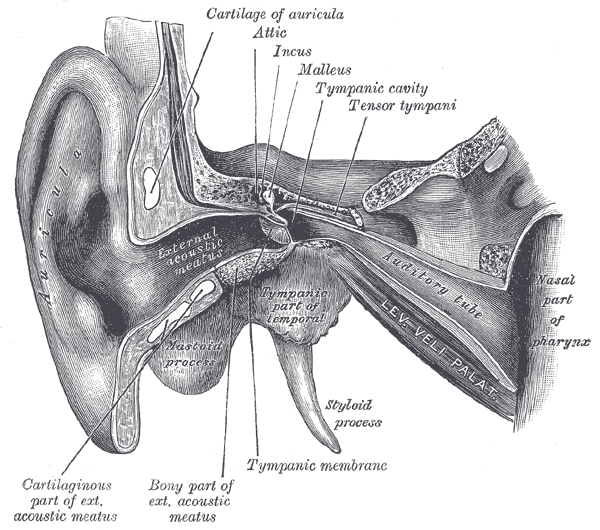Nasopharynx
|
WikiDoc Resources for Nasopharynx |
|
Articles |
|---|
|
Most recent articles on Nasopharynx Most cited articles on Nasopharynx |
|
Media |
|
Powerpoint slides on Nasopharynx |
|
Evidence Based Medicine |
|
Clinical Trials |
|
Ongoing Trials on Nasopharynx at Clinical Trials.gov Clinical Trials on Nasopharynx at Google
|
|
Guidelines / Policies / Govt |
|
US National Guidelines Clearinghouse on Nasopharynx
|
|
Books |
|
News |
|
Commentary |
|
Definitions |
|
Patient Resources / Community |
|
Patient resources on Nasopharynx Discussion groups on Nasopharynx Patient Handouts on Nasopharynx Directions to Hospitals Treating Nasopharynx Risk calculators and risk factors for Nasopharynx
|
|
Healthcare Provider Resources |
|
Causes & Risk Factors for Nasopharynx |
|
Continuing Medical Education (CME) |
|
International |
|
|
|
Business |
|
Experimental / Informatics |
Overview
The nasopharynx (nasal part of the pharynx) lies behind the nose and above the level of the soft palate: it differs from the and laryngeal parts of the pharynx in that its cavity always remains patent (open).
In front it communicates through the choanae with the nasal cavities.
On its lateral wall is the pharyngeal ostium of the auditory tube, somewhat triangular in shape, and bounded behind by a firm prominence, the torus or cushion, caused by the medial end of the cartilage of the tube which elevates the mucous membrane.
A vertical fold of mucous membrane, the salpingopharyngeal fold, stretches from the lower part of the torus; it contains the Salpingopharyngeus muscle.
A second and smaller fold, the salpingopalatine fold, stretches from the upper part of the torus to the palate.
Behind the ostium of the auditory tube is a deep recess, the pharyngeal recess (fossa of Rosenmüller).
On the posterior wall is a prominence, best marked in childhood, produced by a mass of lymphoid tissue, which is known as the pharyngeal tonsil.
Above the pharyngeal tonsil, in the middle line, an irregular flask-shaped depression of the mucous membrane sometimes extends up as far as the basilar process of the occipital bone; it is known as the pharyngeal bursa.
Additional images
-
Nose and nasal cavities
-
External and middle ear, opened from the front. Right side.
See also
- nasopharyngeal carcinoma - cancer of the nasopharynx
External links
Template:Gray's Template:Digestive tract

